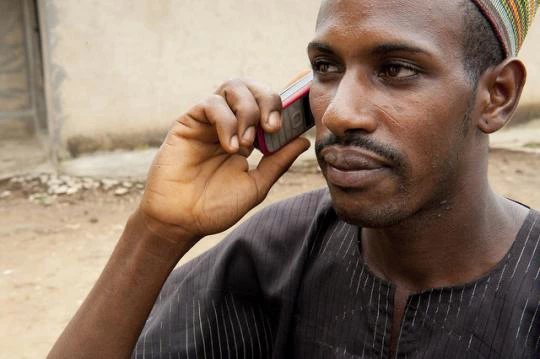
advancing a wide range of ICT initiatives,
including a National Broadband
Development Plan.
Nigeria is home to Africa’s largest population (approximately 174.5 million) and the continent’s biggest economy (more than $500 billion in annual GDP). It is also the center for a wide range of Information and Communication Technology (ICT) activities, from policy to practice – many of which are supported by the World Bank.
Since the establishment of the Ministry of Communication Technology in 2011, the Nigerian government has made notable progress in advancing its ICT agenda. The government has catalyzed significant efforts in the area of policy and regulation, with an ICT Policy developed in 2012, a National Broadband Development Plan developed in 2013 and an e-Government Strategy now in the works.
The Ministry has also made a push for increased use of ICT in government to drive efficiency and service delivery by launching a Federal e-Government Services Portal, institutionalizing a government-wide messaging system, and establishing cadres and councils to drive implementation of various ICT initiatives. In addition, the Ministry brokered relationships between telecommunications companies and federal and state governments to negotiate lower right-of-way costs to decrease consumer prices and increase rural connectivity.
The World Bank leveraged the Korean Trust Fund to partner with the Nigerian government on a number of areas, including developing an Open Government technology framework; leveraging virtualized job opportunities to support job Creation; fostering a telecom Policy Dialogue and providing assistance with launching a Federal Open Data Initiative.
Developing an Open Government technology framework
The World Bank’s ICT team worked closely with the Nigerian government on the development of key documents, which laid a foundation for more open and efficient government. While the Ministry of Communication Technology championed this process, the thinking and documentation has been developed through collaborative processes, which included face-to-face interviews with focal points at line Ministries and four separate workshops. Now the Government of Nigeria is equipped with these important tools:
- An Open Government readiness assessment and action plan, including a vision statement, country commitments and key recommendations;
- A roadmap for creation of innovation ecosystem by leveraging open data;
- A technology roadmap, which includes recommendations for establishing cloud-based government infrastructure, mobile service delivery platform, a proposed list of initial pilot services, a scale-up implementation plan and changes to the existing regulatory environment; and
- Investment cost estimates for technology, capacity building and change management activities.
For this task, a joint World Bank ICT/Education team worked very closely with Nigeria’s Ministry of Communication Technology and Federal Ministry of Education. This initiative, designed to increase awareness among young Nigerians about virtualized job opportunities, became known as the NaijaCloud Initiative ( www.naijacloud.com.ng). The government was a key partner in building awareness among the job-seeking student population through websites, press conferences, newspaper articles and television interviews, while the Bank team drove the outreach to platform companies. The NajiaCloud Initiative included:
- Analysis and recommendations to better understand the Nigerian economic landscape and identify virtual job opportunities, which was prepared for the Ministry of Communication Technology (https://www.dropbox.com/s/817gg78vdxv9i85/Final%20Report%20v2.docx?m);
- An awareness campaign around virtualized job opportunities, which was carried out through a website (www.naijacloud.com.ng), a Facebook page (http://www.facebook.com/naijacloud), a Twitter account (https://twitter.com/naijacloud), and traditional media sources;
- A series of workshops that helped connect more than 1,000 potential workers to international microwork and freelancing organizations including Elance, oDesk and Mobile Works;Workshops that helped acquaint approximately 60 local, regional and international companies and organizations with business opportunities for job creation on virtual platforms;
- Elance-organized events that gave the company’s leadership a chance to reach out to current employees, prospective clients and potential workers.
At the request of Nigeria’s Ministry of Communication Technology, the World Bank ICT team provided assistance to the Broadband Development Committee through feedback on a draft Broadband Implementation Plan. This feedback reflected World Bank experience and best practices from around the world, including from Korea.
Providing assistance with launching an Open Data Initiative
A cross-sectoral team of the World Bank experts, together with Open Government Alliance, have been working with Nigeria’s Ministry of Communication Technology on identifying ways to leverage Open Data in support of four priority areas (agriculture, health, education, and trade and investment). This yearlong effort resulted in the official launch of Nigeria’s Open Data Initiative in January 2014 by the Minister of Communication Technology, Mrs. Omobola Johnson, who stated: “ We would like to ensure that our Open Data initiative is driven by demand. We will be guided by the practical needs of Nigerians to ensure that Open Data fuels innovation and grows the Nigerian economy.”
In this respect, Nigeria is the world’s first federal Open Data Initiative to simultaneously launch inclusive and continuing consultations with both government and grassroots nongovernment communities on their Open Data priorities. We commend our Nigerian counterparts for having convened a wide range of civil society, academic, media and technology stakeholders to explore the demand for Open Data.
In framing the vision of moving to a “Solutions Bank,” World Bank President Jim Yong Kim is not only using the language of technology, but is also signaling that ICT is fundamental to achieving the goals of eliminating extreme poverty and boosting shared prosperity. ICT is essential to generating the data, analytics and solutions delivery mechanisms, especially mobile, needed to realize this vision.
While Nigeria is leading the way in some of the areas, a lot remains to be done. The country is well-positioned to capitalize on the booming mobile market and anticipated growth of broadband penetration rates. Nigeria is already home to many ICT innovations that are proven to work in a developing country context and are already changing the lives of ordinary citizens. These need to be taken to scale. Instead of building bespoke technologies and standalone solutions, the focus should be on developing reusable ICT solutions that can be replicated.
The truth is that ICT is not only a key foundation for economic growth and environmental sustainability, but can also have a direct, measurable impact on the lives and prosperity of people, whether they live in rural communities or crowded cities. Nigeria is well placed to play a key role in the development of a digital Africa.


Join the Conversation